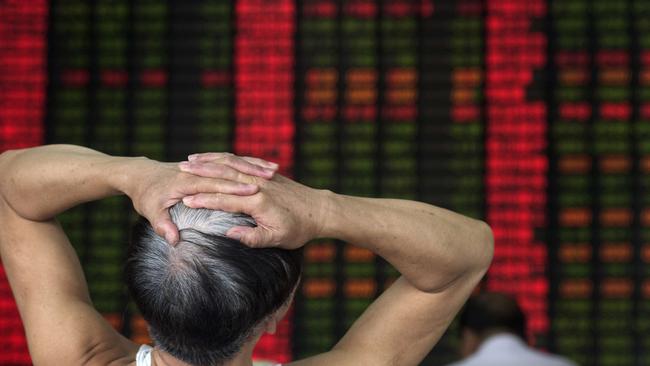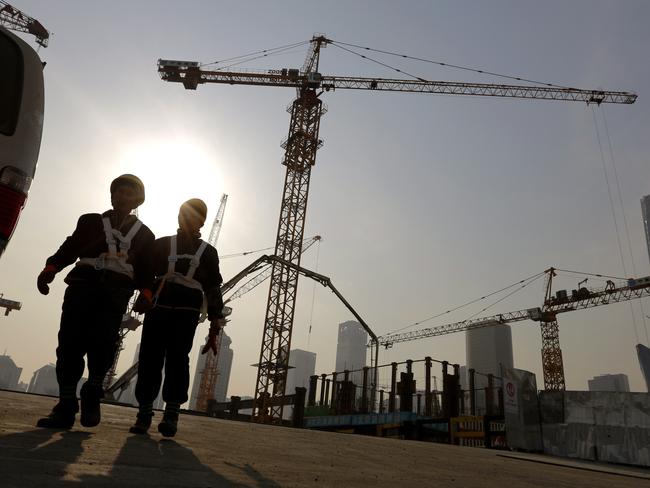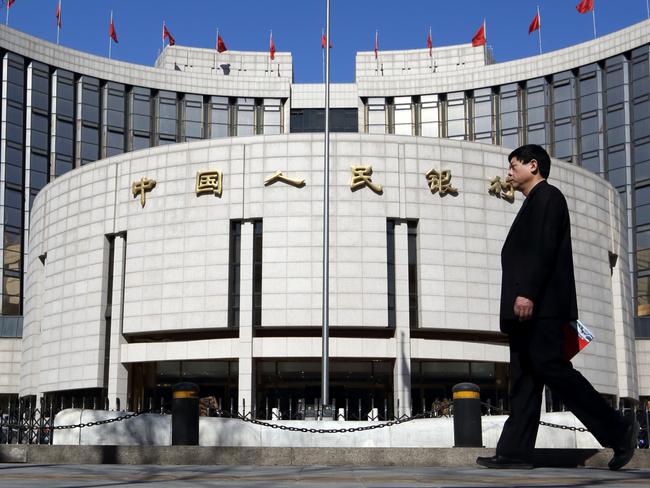Australia is uniquely vulnerable to China’s economic downturn, with exports and even housing affordability at risk
WHAT does China’s economic slowdown have to do with Sydney house prices? One of the world’s top experts explains how it could affect you.

WITH share markets plunging and the Chinese government parading journalists on television as scapegoats for the crash, it’s no wonder investors are spooked.
But what lies behind the rout, and what are the implications for Australia?
To put it simply, China’s share market is (reluctantly) catching up with reality, explains Silvercrest Asset Management’s managing director Patrick Chovanec.
“It’s not like the wheels suddenly fell off the Chinese economy — it was in trouble for awhile,” Mr Chovanec said.
“The stock market is waking up to that fact, and accepting that it could have some relevance to the share market.”
But the biggest concern is where the Chinese government will go next in attempting to salvage the situation.
Unsurprisingly, Australia is particularly vulnerable to being impacted by China’s economic turmoil — and a lot rides on how its correction plays out.
“China’s slowdown in construction and investment hits Australia very hard because, unlike a lot of other countries, it really was able to ride China’s investment boom,” he said.
Mr Chovanec, a leading China expert who has taught at Beijing’s Tsinghua University, said the balance between investment and consumption in the world’s second-largest economy needed to be restored — a process that would happen regardless of what action the Chinese government took.
AUSTRALIAN DREAM AT STAKE
The most drastic outcome could see Australia’s standard of living drop and house prices rise even higher if the superpower does not embrace a major economic adjustment.
“The worst case scenario is that they continue to try and stave it off, devalue the currency further to try and shore up the existing model and create capital flight,” Mr Chovanec said.
“There’s a good opportunity to draw down reserve to drive consumption — but if they don’t, and devalue the currency to shore up exports, they run the risk of mass capital flights.”
One likely destination for Chinese capital was the Australian property market, he said.
“Sydney real estate prices would go up, but the return to the Australian economy that would support those prices (such as higher incomes) would go down ... It’s good if you own a house, but it’s terrible if you want one or you are trying to pay one off.”

World markets plunged overnight as more evidence emerged of China’s economic slowdown, with the Australian market following suit by opening one per cent lower this morning, when the benchmark S & P/ASX200 index was down 51.9 points at 5,044.5.
The Chinese government yesterday revealed last month’s manufacturing index was at its lowest point in three years, prompting sell-offs in the United States, Europe and Australia.
The latest data, revealed today, shows Australia’s economy grew a slower-than-expected 0.2 per cent in the three months through June, dragged down by waning Chinese demand for resources including iron ore and coal.
And the Australian dollar today dropped to 70 US cents, its lowest since 2009.
However, it’s not all bad news; Mr Chovanec said Australia had an opportunity to tap into China’s consumer market for things like food, kicking off an “overdue and much needed adjustment” in our export focus.
The Australia-China Free Trade Agreement, signed last year and currently pending ratification by Parliament, will open up a huge new market for our horticulture, agriculture, wine, dairy, wool and beef industries.
“Some decline in the Australian dollar is helpful in facilitating that, but it’s not painless,” Mr Chovanec said.
“China’s ability to consume — to provide end user demand, not intermediate demand like the demand for iron ore — that’s what the world should care about, and that’s what the adjustment is about.”

BEIJING’S REACTION IS CRUCIAL
Mr Chovanec said China’s intervention in its share market, including banning investors from selling unless the price was rising, did not bode well for much-needed economic reform, with robust equities markets needed to facilitate the movement of capital.
He said China’s machinations in trying to manipulate its share market were “pretty much unprecedented”— at least since Japan in the 1990s — with the government last week going back on a promise not to intervene further, and launching a crackdown on investors accused on “causing the market to go down”.
“What it amounts to is saying ‘we’re not going to throw money into the market, but we’re going to make sure you do’ ... That’s not a functioning market.”
A Chinese journalist made to apologise on live television for “causing” the crash had merely reported that “the Chinese government was considering no longer making share purchases to support the market; this week, the official news is exactly that.”
Mr Chovanec said while people assumed China’s control of its economy was strong, many did not realise how much it had transformed in recent years, with an “explosion in non-bank lending” and margin lending accounting for as much as a quarter of share market trades.

“China’s financial system is almost unrecognisable compared to four or five years ago,” Mr Chovanec said.
“We don’t know what we don’t know about China’s shadow banking system, and how they’re tied to bank balance sheets. I’m not predicting it will unravel, but I think this is why they intervened — because they do not know what will happen ... The question is, what happens when people default? Well, they didn’t want to find out.”
Meanwhile, a US Treasury official said Washington’s key focus in the meeting of G20 economy chiefs in Ankara later this week would be to press for action to boost global demand, and to urge Beijing authorities to better communicate their policies for shoring up the economy and markets.
Treasurer Joe Hockey said the Australian economy was more resilient than other resource-reliant economies and that a slowdown in mine construction was being offset by increases in the building and services industries.
He said 3.7 per cent annual economic growth in the June quarter in the United States left Australia “relatively well positioned for any unexpected weakness in China”.
“The transition away from a reliance on mining investment is well underway,” Mr Hockey said.



